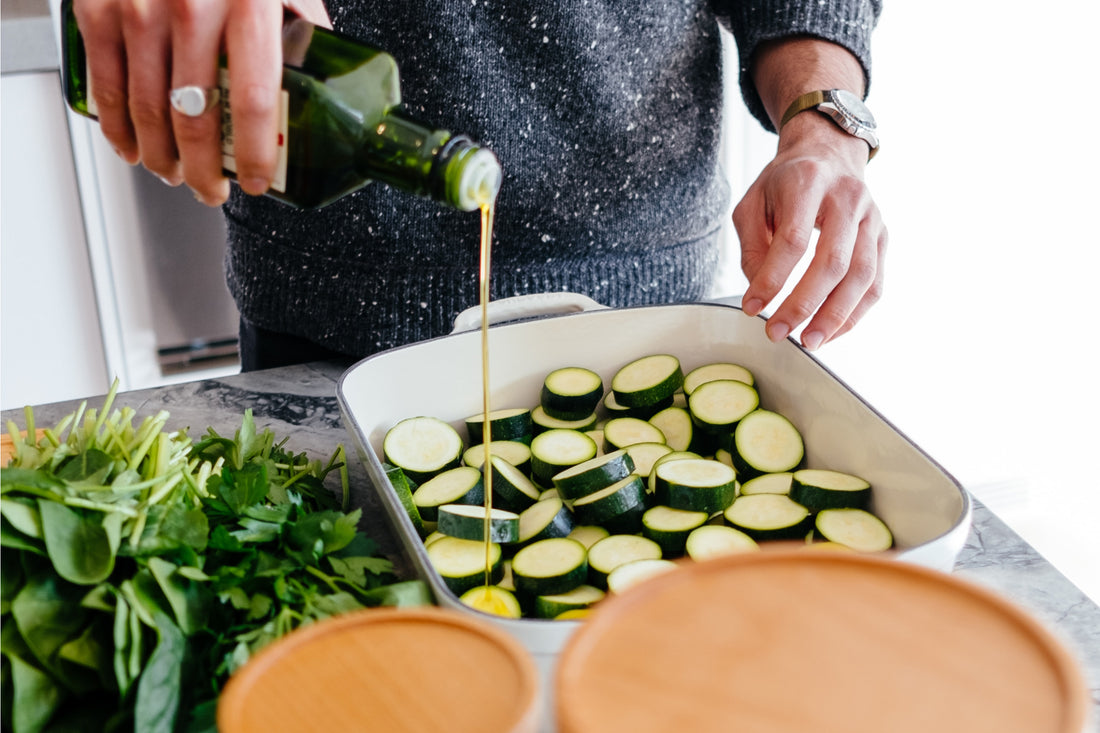Ever leave your house in the morning only to realize – halfway to your destination – that you left something important at home? Or perhaps you misplaced your keys when you could’ve sworn that you had them in your hand a second ago?
No matter how great your memory is, it’s inevitable that we all experience a moment of forgetfulness from time to time.
Poor memory occurs for a number of reasons. You might be having trouble focusing because there’s a lot of stuff on your mind, or maybe sleep deprivation from the night before has hindered your ability to think clearly. Whatever your recall situation, the good news is that there are a number of ways to improve your memory naturally.
Want to give your memory a boost? Here are 7 simple ways to enhance your memory and cognitive performance!
1. Catch Some Z’s
We’ve all experienced sleep deprivation at some point in our lives – it’s not fun.
Sleep deprivation leads to poor memory, and it significantly impairs our ability to think clearly and recall information. In other words, being sleepy makes it next to impossible for anything that goes on around us to live on in our short-term memory.
In terms of memory, poor brain performance isn’t the only roadblock that comes with lack of sleep. The process of memory consolidation takes place when we’re sleeping, and as you would’ve guessed, sleep deprivation negatively impacts our sleep cycles. The quality of your sleep and the amount of hours that you get in can impact these sleep cycles immensely. It’s precisely during these sleep cycles that our experiences during the day and any new information we learn are ingrained into our memory.
2. Consume Less Sugar
It’s really no secret that an excessive amount of sugar in our diet is detrimental to our health. High sugar intake is linked to a number of serious health complications and chronic illnesses, along with adverse effects on cognitive function. More specifically, drinks that are loaded with sugar have been linked to preclinical Alzheimer’s disease.
But what about artificial sweeteners?
Well, your best bet is to steer clear of both because studies have also linked artificial sweeteners to dementia.
A connection has also been made between high sugar intake and reduced brain volume, especially in the hippocampus, which is the region of the brain that houses short-term memory.
3. Start Meditating
Ultimately, people of all ages can really benefit from incorporating meditation and other relaxation techniques into their lifestyle as an effective method to alleviate stress.
However, meditation can do so much more for you and your brain health by preventing age-related memory loss and cognitive decline. Just in case you needed another reason to start meditating, it also has the ability to increase gray matter in the brain.
Why’s this important?
As we grow older, there’s a decline of gray matter in the brain and this has adverse effects on our memory and brain performance.
4. Drink More Water
It goes without saying that drinking more water throughout the day is one of the best things you can do for your health. But did you know that our hydration status can also impact our brain health?
When we don’t drink enough water throughout the day, our body will respond with low energy levels and a decline in cognition, which includes poor memory.

The easiest way to stay on track with your fluid intake?
Bring a reusable water bottle with you everywhere you go! For better hydration, alkaline water is a great alternative to regular drinking water. Compared to regular water, alkaline water can hydrate the body more effectively because it has smaller molecules.
With the Insulated DYLN Bottle, you can convert regular drinking water into alkaline, antioxidant water in just under 20 minutes.
5. Add Antioxidant and Anti-inflammatory Foods to Your Diet
The link between diet and health is undeniable.
Aside from preventing serious health complications and chronic diseases, consuming a diet rich in antioxidant and anti-inflammatory foods can also help fight memory loss.
To lower your risk in developing age-related memory loss and other forms of cognitive decline, incorporate more fruits and vegetables into your diet! According to research, berries, such as blueberries, strawberries, and blackberries help combat memory loss.
Include more anti-inflammatory foods into your diet:
- Olive oil
- Tomatoes
- Nuts
- Fatty fish, such as tuna and salmon
- Green leafy vegetables, such as kale and spinach
For better brain health, try to stay away from processed foods, refined carbs, and beverages loaded with sugar.
6. Get Some Exercise
In conjunction with a healthy diet, regular exercise also helps to set the foundation for a healthier, happier life.
However, did you know that exercise actually has the ability to improve brain health? According to research, regular exercise leads to greater brain volume and plasticity, which is beneficial for both memory and learning.
Getting a good workout in can also indirectly improve your memory, because exercise can alleviate stress and put you in a better mood, which is the ultimate formula for getting a good night’s sleep.
7. Train Your Brain
When it comes to getting a good workout in, you definitely can’t forget about your brain!
A simple yet effective method to give your memory a boost? Exercise your cognitive skills by playing brain-training games in your spare time.
There are a bunch of mobile apps that are designed specifically for training your brain or enhancing your problem-solving skills. Other simple strategies to strengthen your cognitive abilities include, crossword puzzles or even indulging in a game of Tetris to improve your spatial skills.
Take Care of Your Brain!
It’s incredibly important to recognize that diet and exercise have a tremendous impact on all aspects of our health, including our brain.
Besides lowering our risk of developing serious health complications and chronic diseases, a healthy diet and regular exercise also helps to prevent age-related memory loss and cognitive decline.
Keeping your brain health in tip-top condition is as simple as drinking more water, eating more antioxidant and anti-inflammatory foods, and playing a game of Tetris every now and then!






